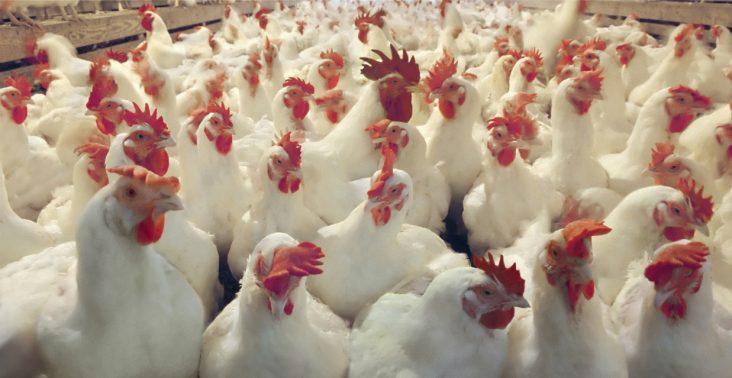China lifts ban on U.S. poultry imports
by November 14, 2019 9:12 am 953 views

China has announced it will resume poultry imports from the U.S. after a nearly five-year ban.
The stoppage originally occurred in January 2015 due to an outbreak of avian influenza, which led to a Chinese ban on all U.S. poultry and eggs. China is dealing with a serious shortage of protein, in part due to a fatal hog disease that crippled its domestic pork industry.
U.S. Trade Representative Robert Lighthizer said lifting the poultry ban would be a welcome relief for American poultry producers.
“The United States welcomes China’s decision to finally lift its unwarranted ban on U.S. poultry and poultry products. This is great news for both America’s farmers and China’s consumers,” Lighthizer said. “China is an important export market for America’s poultry farmers, and we estimate they will now be able to export more than $1 billion worth of poultry and poultry products each year to China. Reopening China to U.S. poultry will create new export opportunities for our poultry farmers and support thousands of workers employed by the U.S. poultry industry.”
Prior to the ban in 2015, American poultry producers exported over $500 million in products to China. U.S. officials said the industry had been free from the avian flu disease since 2017, but it had not resulted in a resumption of trade. The U.S. is the world’s second-largest poultry exporter with global exports of poultry meat and products of $4.3 billion last year, according to the U.S. Department of Agriculture.
The National Chicken Council, National Turkey Federation and USA Poultry and Egg Export Council applauded the announcement. The groups said the value of exports from the U.S. to China was $71 million for turkey and $722 million for chicken before the ban occurred.
“America’s poultry producers are committed to raising high-quality, nutritious products, and we are extremely pleased that we will once again have the opportunity to share these products with Chinese consumers. We look forward to resuming a trade partnership with China in the coming weeks,” the three groups said in a joint statement.
Ben Bienvenue, an analyst with Stephens Inc., said two weeks ago that an announcement would be a “clear positive” for Tyson Foods, Pilgrim’s Pride and Sanderson Farms, through Sanderson is likely to benefit the most, given prior sales trends before the ban was levied. (Stephens conducts investment banking services with all three companies and is compensated accordingly.)
“Chicken feet are less popular in Western civilization and due to a lack of demand, the product is typically sold to rendering plants at significantly lower prices. In China, chicken feet can be sold for as much as $1 per pound, whereas feet sold into rendering plants typically fetch ~$0.10-$0.20,” Bienvenue explained.
Analyst Peter Galbo with Bank of America Merrill Lynch wrote in a note to clients that lifting the ban would boost U.S. chicken prices, too.
“… We view this as a clear positive for the U.S. poultry industry … as a lift of the import ban would provide a significant export market for U.S. producers and could provide support to U.S. chicken prices,” Galbo said.
Springdale-based Tyson Foods CEO Noel White has previously said his company, which has operations in China, is ready to meet the demand. Tyson shares jumped more than 5% in early trading to $93.45 per share – close to its 52-week high of $94.04.
While the poultry ban lift is viewed positively, it is not part of an overall breakthrough in the U.S.-China trade and tariff war, which has been festering for more than two years.
Editor’s note: Kim Souza contributed to this report.
